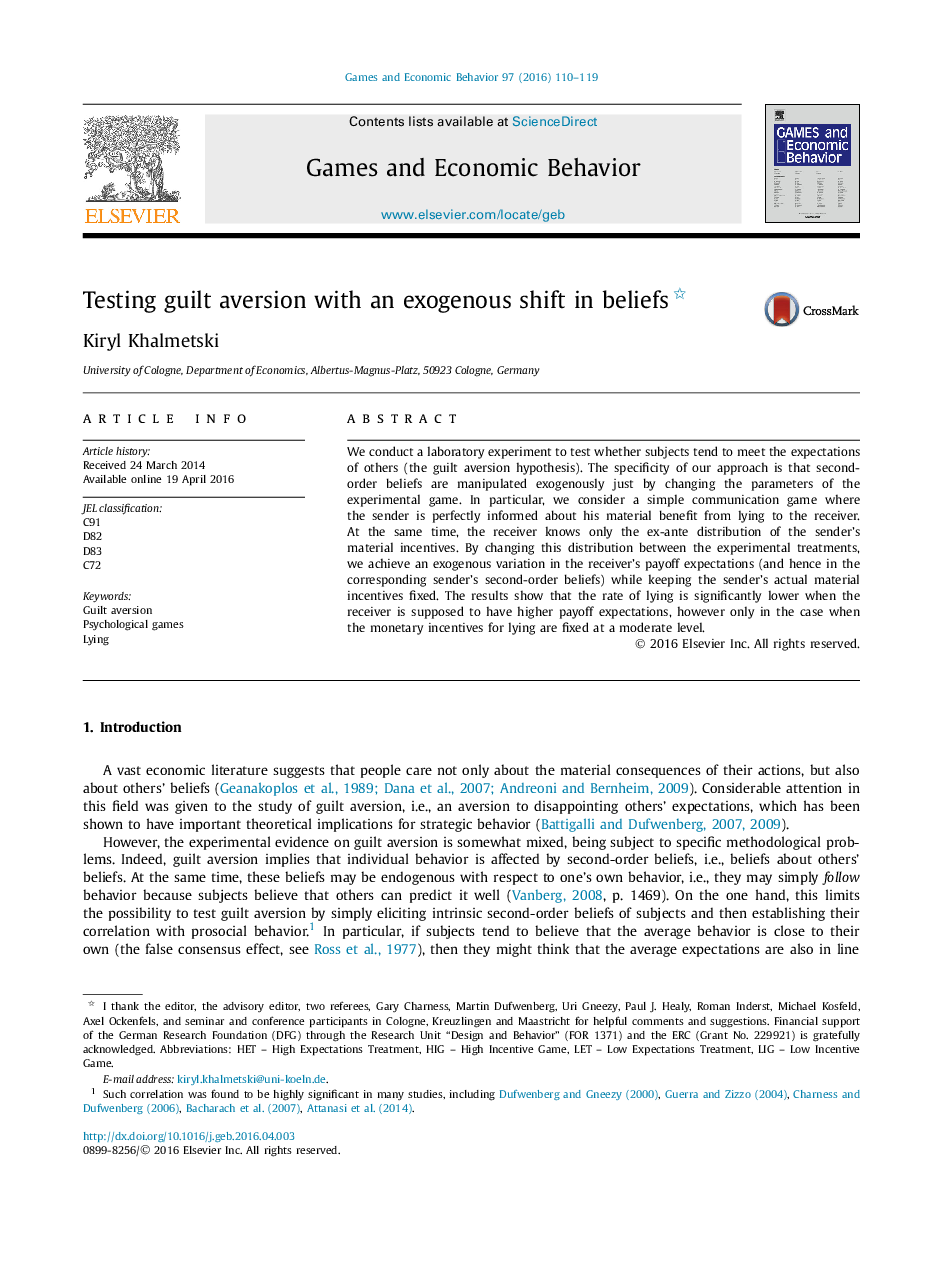| Article ID | Journal | Published Year | Pages | File Type |
|---|---|---|---|---|
| 5071614 | Games and Economic Behavior | 2016 | 10 Pages |
Abstract
We conduct a laboratory experiment to test whether subjects tend to meet the expectations of others (the guilt aversion hypothesis). The specificity of our approach is that second-order beliefs are manipulated exogenously just by changing the parameters of the experimental game. In particular, we consider a simple communication game where the sender is perfectly informed about his material benefit from lying to the receiver. At the same time, the receiver knows only the ex-ante distribution of the sender's material incentives. By changing this distribution between the experimental treatments, we achieve an exogenous variation in the receiver's payoff expectations (and hence in the corresponding sender's second-order beliefs) while keeping the sender's actual material incentives fixed. The results show that the rate of lying is significantly lower when the receiver is supposed to have higher payoff expectations, however only in the case when the monetary incentives for lying are fixed at a moderate level.
Related Topics
Social Sciences and Humanities
Economics, Econometrics and Finance
Economics and Econometrics
Authors
Kiryl Khalmetski,
